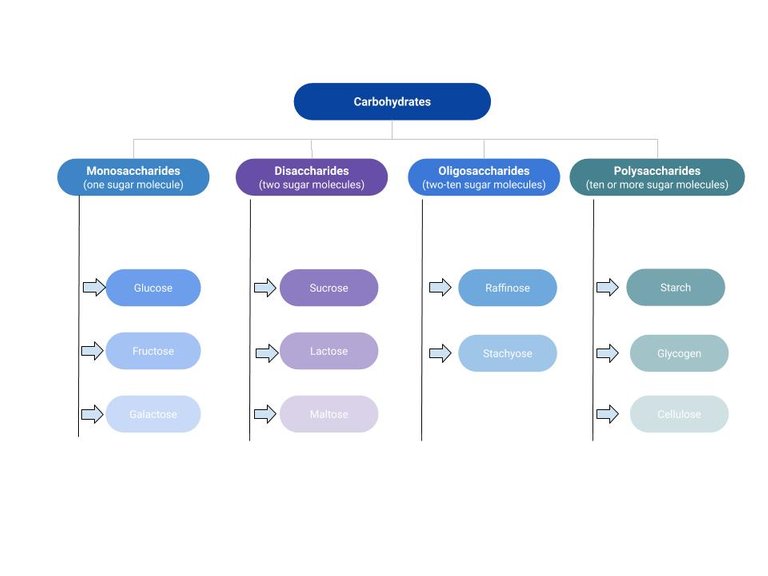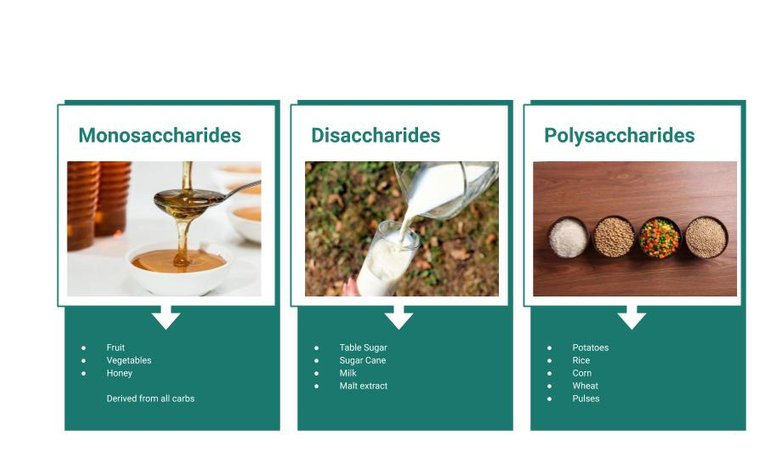In recent times there has been a somewhat demonisation of carbohydrates embodied by movements such as Paleolithic Diet, Ketogenic Diet and Atkins Diet to name a few. It can be exceedingly difficult for a layperson who simply wants to shed some pounds to know what precisely carbohydrates do in the body and whether cutting them out is an effective fat loss tool. In these articles, I will attempt to define what carbohydrates are, their functions in the body and what sources are optimal. As this is a broad topic I will divide it into different parts so it is easier to digest (pun intended) For this section I will talk about sugars and starches. So get yourself a warm brew and settle in for some serious learning.

It's the latest rage!
In recent times there has been a somewhat demonisation of carbohydrates embodied by movements such as Paleolithic Diet, Ketogenic Diet and Atkins Diet to name a few. It can be exceedingly difficult for a layperson who simply wants to shed some pounds to know what precisely carbohydrates do in the body and whether cutting them out is an effective fat loss tool. In these articles, I will attempt to define what carbohydrates are, their functions in the body and what sources are optimal. As this is a broad topic I will divide it into different parts so it is easier to digest (pun intended) For this section I will talk about sugars and starches. So get yourself a warm brew and settle in for some serious learning.
Carbohydrates - definition
When talking about carbs people tend to think of them as being synonymous with sugar, whilst this is certainly true, it's important to note that the food group is far broader in reality and includes monosaccharides, disaccharides, oligosaccharides and polysaccharides.
 a
a
Monosaccharides - Translating to mean "one sugar" these are the class of single sugars that cannot be broken down anymore during digestion, the most common sources being glucose, fructose and galactose. Interestingly, glucose despite being the most abundant form is consumed in very small quantities directly but is rather is the basic sugar unit carbohydrates are broken down into by the body. When people refer to blood sugar, this is glucose.
Sources
Glucose: Corn syrup, Honey
Fructose: Fruit, soft drinks
Galactose: Forms milk sugar (lactose)
Disaccharides - You guessed it, this translates to two sugars, this is another form of simple carbohydrate where two monosaccharides are linked in a chemical bond. One type of bond known as beta bonds and can be difficult for the body to break down, this is most commonly seen in lactose, which is why some milk products can cause intestinal distress. The most common forms of disaccharides are Maltose, Sucrose and Lactose.
Sources
Maltose: Beers, sprouted grain seeds.
Sucrose: Table sugar, sugar cane, various plants
Lactose: Diary products
Oligosaccharides: These are now entering the realm of what is known complex carbohydrates that contain somewhere between 3-10 sugar molecules (oligo stand for few). With the most common forms being raffinose and stachyose, it was previously thought that the body couldn't derive any energy from these molecules. However recent research has shown some can give a small energy value to the body. The bacteria of the large intestine break them down giving off various byproducts which in some individuals can cause bloating. They also can promote a healthy gut overall through promotion of certain bacteria.
Sources
Raffinose: Whole grains, broccoli, cabbage, beans etc
Stachyose: Green beans, Soybeans, vegetables.
Polysaccharides: Poly meaning many, are hundreds or thousands of glucose molecules that form large branch structures. They are broadly divided into two groups: starches and fibres. Starches are a digestible source that is found predominantly in bread, potatoes, pasta and rice. When cooked they become easier for digestive enzymes to break down thus increasing their nutritional availability. At the other end of this group are the fibres which because of the beta bonds (similar to lactose) are difficult for the body to digest and are mostly broken down by bacteria in the gut. They can be divided further into soluble and insoluble fibre, both having different effects in the body which I will cover in a later post).
Sources
Starch: wheat, rye, corn, oats, barley etc
Fibre: Outer layers of grains, the skin of vegetables and fruit.

I will leave it there for now and allow you to assimilate this information and think about which foods you find mostly in your diet. Next post I will begin breaking down how to apply this information to your health, physique and performance.
Enjoy, Tom
References and further reading
Hey Tom!
This is quite an interesting post that we would be happy to support at SteemSTEM. However, the image you used (with the table) is not copyright free and for this reason, we can't support the post (at least at present time).
Would you mind trying to find a similar image (or maybe make one) that is free to use? Thanks in advance for your consideration!
Hey Lemouth,
Thank you for the consideration, I have made some new images that illustrate the information so I hope that suffices.
I appreciate the input and will continue to keep trying to evolve these articles to a higher standard :)
Congratulations @thp88! You have completed the following achievement on the Steem blockchain and have been rewarded with new badge(s) :
You can view your badges on your Steem Board and compare to others on the Steem Ranking
If you no longer want to receive notifications, reply to this comment with the word
STOPTo support your work, I also upvoted your post!
Do not miss the last post from @steemitboard:
Vote for @Steemitboard as a witness to get one more award and increased upvotes!
This post has been resteemed by @original.content.
Follow me to keep up-to-date with posts tagged #oc and the author on ocdb's follow list.
If you don't like this message, please reply
STOPand I'll cease notifying you ASAP.Powered by witness untersatz!